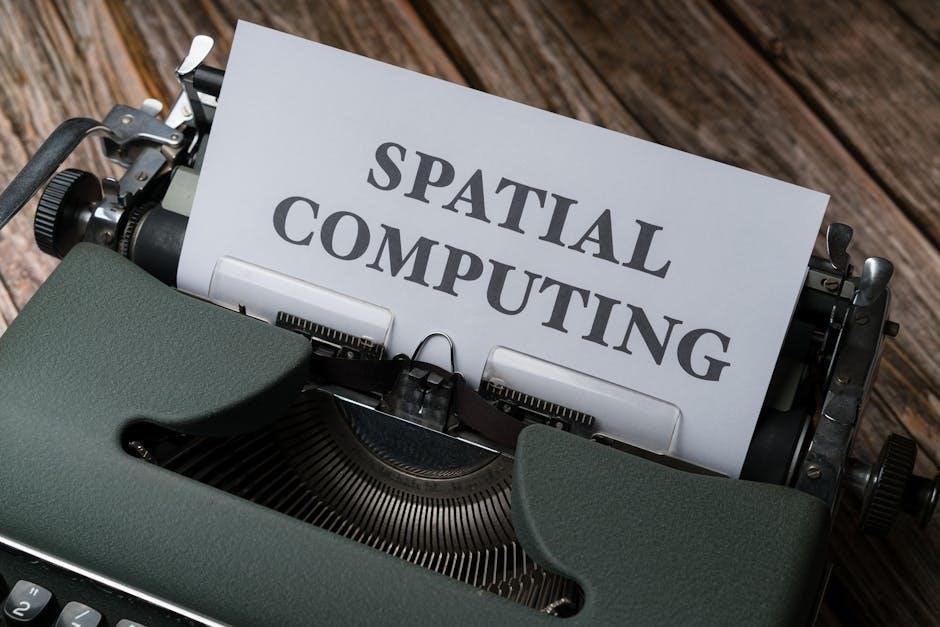Charles W. Mills’ The Racial Contract critiques traditional social contract theory, introducing the concept of a racialized agreement that perpetuates white supremacy and systemic inequality globally.
1.1. Overview of the Book and Its Author
Charles W. Mills, a Jamaican philosopher, authored The Racial Contract, a critical analysis of race and power dynamics. The book challenges traditional social contract theory, introducing the concept of a racialized agreement that underpins global inequalities and white supremacy, offering a radical perspective on political philosophy and history.
1.2. The Main Thesis of “The Racial Contract”
Charles Mills argues that a racial contract, implicit in global power structures, legitimizes white supremacy and systemic inequality. This unacknowledged agreement perpetuates racial domination, shaping legal, economic, and social systems to privilege whites, while subordinating non-whites, exposing the moral hypocrisy in traditional social contract theories.
1.3. Relevance of the Concept in Modern Society
Mills’ racial contract theory remains highly relevant, explaining systemic racism and inequality in contemporary societies. It sheds light on how historical power structures continue to influence modern institutions, policies, and social dynamics, making it a crucial framework for understanding and addressing ongoing racial injustices and disparities globally today.

Defining the Racial Contract
The racial contract, as conceptualized by Charles W. Mills, is a tacit agreement among whites to maintain racial hierarchy, enforcing systemic inequality and justifying exploitation of non-whites globally.
2.1. The Concept of the Racial Contract
The racial contract, as outlined by Charles W. Mills, is a theoretical framework that exposes how race structures societal inequalities. It highlights an implicit agreement among whites to uphold systems of racial dominance, perpetuating power imbalances and justifying the exploitation of non-white populations historically and contemporarily.
2.2. How It Differs from the Social Contract
The racial contract diverges from the social contract by emphasizing race as a foundational element of societal structure. While the social contract assumes equality and mutual consent, the racial contract reveals a system of racialized oppression, exclusion, and exploitation, challenging the idealized notions of fairness and justice in traditional theory.
2.3. The Role of Race in Shaping Societal Structures
Race operates as a foundational organizing principle in society, influencing economic, political, and cultural systems. The racial contract creates hierarchical structures that privilege whites while subordinating other races, embedding inequality into institutions and shaping social norms, laws, and power dynamics to maintain racialized systems of oppression and dominance.

Historical Context and Applications
The racial contract is deeply rooted in colonialism and slavery, shaping global power dynamics. Mills traces its historical evolution, revealing how race has systematically structured inequality across societies and institutions, perpetuating domination and subjugation through implicit and explicit agreements among white populations;
3.1. The Racial Contract in Colonialism and Slavery
The racial contract was central to colonialism and slavery, functioning as an implicit agreement among whites to dominate and exploit people of color. It justified systemic oppression, racial hierarchy, and resource extraction, shaping global power dynamics and creating enduring inequalities that persist in modern societies.
3.2. The Racial Contract in Modern Institutions
Modern institutions, from education to criminal justice, reflect the racial contract’s legacy. Policies and practices perpetuate systemic racism, maintaining white privilege and marginalizing communities of color through unequal access, biased enforcement, and structural inequities that uphold historical power imbalances.
3.3. Case Studies of Racial Contract in Action
Case studies reveal the racial contract’s enduring impact, from colonial exploitation to modern systemic racism. Historical examples like slavery and segregation illustrate its foundation, while contemporary issues such as racial disparities in criminal justice and education demonstrate its persistent influence across the globe in various societies.

Critique of Social Contract Theory
Mills critiques traditional social contract theory for overlooking race and racism, arguing that it obscures the racialized nature of societal structures and power dynamics historically.
4.1. Traditional Social Contract Theorists and Their Omissions
Traditional theorists like Hobbes, Locke, and Rousseau overlooked race, framing the social contract as universal. Mills argues their frameworks ignored racial oppression, failing to address how racial hierarchies shaped societies and justified inequality, thus perpetuating white supremacy and marginalizing non-whites historically and systematically.
4.2. Mills’ Radical Use of Social Contract Theory
Mills reimagines social contract theory by centering race, introducing the racial contract as an implicit agreement among whites to maintain supremacy. This radical approach exposes historical injustices and challenges traditional theorists’ silence on race, offering a critical lens to analyze systemic inequality and power structures globally.
4.3. Implications for Political Philosophy
Mills’ theory challenges political philosophy to confront race’s role in shaping societies. It demands a reevaluation of justice, rights, and power, urging scholars to address systemic racism and integrate nonideal theory into ethical frameworks to create more equitable political systems and ideologies.

The Role of White Supremacy
White supremacy operates as a political system, legitimizing racial hierarchies and power imbalances. Mills argues it is upheld through the Racial Contract, perpetuating domination and moral injustice.
5.1. White Supremacy as a Political System
White supremacy functions as an unnamed political system, structuring society to privilege whites. Mills argues it is enforced through the Racial Contract, creating racial hierarchies and domination. This system remains implicit in traditional political discourse, yet it profoundly shapes power dynamics and moral frameworks globally.
5.2. How the Racial Contract Perpetuates White Supremacy
The Racial Contract ensures white supremacy by legitimizing racial hierarchies, denying equal rights to non-whites, and masking systemic oppression. It operates subtly, embedding racism in institutions and ideologies, thus maintaining white dominance while appearing neutral, perpetuating inequality and injustice across societal structures.
5.3. The Moral and Political Implications
The Racial Contract reveals systemic moral failings, as it legitimizes inequality and oppression. Politically, it underscores how power structures perpetuate white supremacy, challenging the notion of equal rights and justice. Addressing these implications demands accountability and radical societal transformation to dismantle entrenched racial hierarchies and achieve true equity.

Nonideal Contract Theory
Nonideal Contract Theory examines real-world inequities, contrasting with traditional social contract ideals. Mills uses it to expose racial oppression, revealing how race structures societal inequalities and power dynamics.
6.1. The Concept of Nonideal Theory
Nonideal theory challenges traditional contract theories by focusing on real-world inequalities and power imbalances. It provides a framework to analyze oppression and injustice, offering a critical lens to understand systemic racism and its historical roots in shaping modern societies and institutions.
6.2. Using Nonideal Theory to Expose Inequities
Nonideal theory, as applied by Mills, examines real-world power dynamics and systemic racism, revealing how the racial contract perpetuates inequality through moral and political structures, aiming to uncover and challenge these embedded injustices for transformative societal change and equity.
6.3. The Role of the Racial Contract in Nonideal Theory
Mills’ racial contract is a critical component of nonideal theory, exposing how racialized power structures perpetuate inequality. It reveals the implicit agreements maintaining white supremacy, offering a framework to critically analyze and challenge these injustices in society.

Implications for Race Relations
The racial contract exposes systemic racial hierarchies, highlighting inequalities embedded in societal structures. Addressing these is crucial for fostering equity and justice in race relations.
7.1. Understanding Racial Injustice Through the Contract Lens
The racial contract framework provides a critical lens to analyze systemic racial injustice, revealing how historical and systemic inequalities are embedded in legal, economic, and social structures, perpetuating racial hierarchies and power imbalances.
7.2. The Impact of the Racial Contract on Marginalized Communities
The racial contract perpetuates systemic inequalities, disproportionately affecting marginalized communities through economic disparities, criminal justice bias, and limited access to resources. It reinforces racialized power structures, fostering mistrust and alienation, while perpetuating cycles of oppression and exclusion that hinder social mobility and equity.
7.3. Strategies for Challenging the Racial Contract
Challenging the racial contract requires dismantling systemic racism through education, policy reform, and grassroots activism. Promoting inclusive language, supporting marginalized voices, and advocating for equitable resource distribution can disrupt racialized power structures, fostering solidarity and enabling collective resistance against oppression and inequality.
Global Perspectives on the Racial Contract
The racial contract shapes societies worldwide, with roots in colonialism and slavery. It manifests differently across cultures, perpetuating racial hierarchies and inequalities that require global analysis and resistance.
8.1. The Racial Contract in Different Cultural Contexts
The racial contract adapts to diverse cultural settings, shaping local hierarchies and inequalities. In Australia, it underpins colonialism, while in India, it intersects with caste systems. Each context generates unique racialized power structures, reflecting global patterns of domination and subjugation rooted in historical and cultural specificities.
8.2. International Examples of Racial Contract Dynamics
The racial contract manifests differently worldwide, as seen in South Africa’s apartheid system and Brazil’s racial hierarchies. In both cases, systemic inequalities are perpetuated through legal and social structures, reflecting how race shapes access to power and resources across global contexts.
8.3. Global Resistance and Solidarity Against the Racial Contract
Global movements like Black Lives Matter and decolonial activism challenge the racial contract, fostering solidarity across borders. These efforts highlight the need for collective action to dismantle systemic racism and promote equitable societies worldwide, emphasizing unity and resistance against entrenched racial hierarchies and inequalities.
The Racial Contract in Contemporary Discussions
Mills’ theory remains pivotal in modern discourse, influencing social movements and educational initiatives aimed at addressing racial inequality and promoting antiracist practices globally.
9.1. Current Relevance of Mills’ Theory
Mills’ Racial Contract theory is highly relevant today, as it provides a framework to understand systemic racism and white supremacy in modern institutions, influencing current social justice movements and academic discourse on race and inequality globally.
9.2. The Racial Contract and Modern Social Movements
Mills’ theory aligns with modern movements like Black Lives Matter, highlighting how systemic racism, rooted in the racial contract, perpetuates inequality. These movements emphasize dismantling structures of white supremacy and seeking justice, reflecting the ongoing relevance of Mills’ critique in contemporary activism and discourse.
9.3. The Role of Education in Addressing the Racial Contract
Education plays a crucial role in dismantling the racial contract by promoting awareness of systemic racism and empowering individuals to challenge inequality. Curricula must include diverse perspectives and critical analyses of race, fostering inclusive environments that encourage dialogue and reflection. This transformative approach equips students to advocate for equity and justice.
The racial contract exposes systemic racism’s roots, urging recognition of its historical and modern impacts. Understanding it is crucial for fostering equity and dismantling oppressive structures globally.
10.1. Summary of Key Points
Charles W. Mills’ The Racial Contract challenges traditional social contract theory, exposing how race structures inequality. It highlights white supremacy’s role in shaping societal systems and advocate for equity and justice in addressing these historical and systemic issues globally.
10.2. The Importance of Understanding the Racial Contract
Understanding the Racial Contract reveals how race structures societal inequalities and perpetuates white supremacy. It highlights the moral and political implications of systemic racism, emphasizing the need for equity and justice. Recognizing these dynamics is crucial for addressing historical injustices and fostering global change.
10.3. Call to Action for Future Change
Addressing the Racial Contract demands collective action, education, and policy reform to dismantle systemic racism. Individuals must advocate for equity, challenge structures of oppression, and support marginalized communities. This collective effort is essential for creating a just and inclusive society that values diversity and human rights for all.



